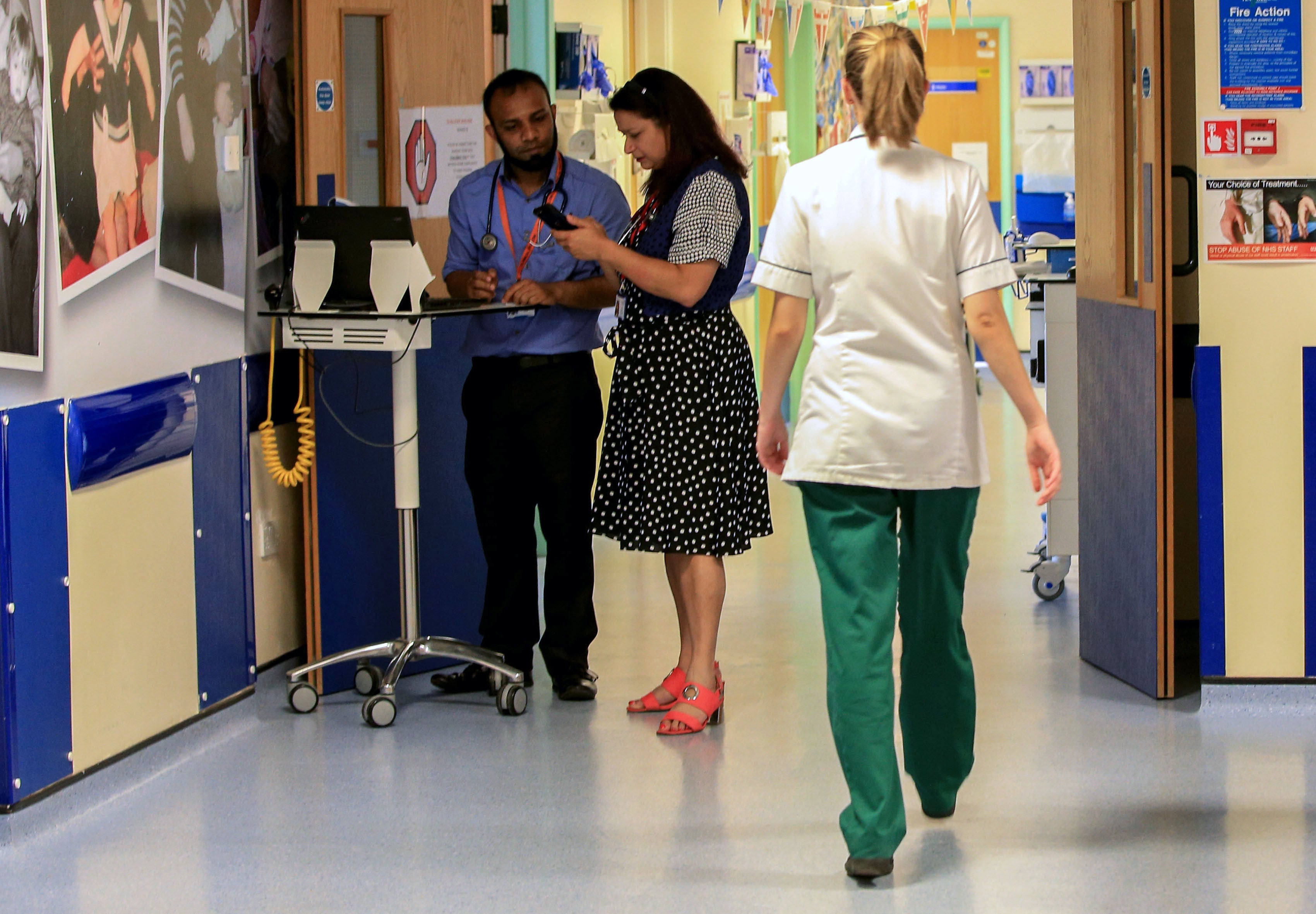NHS experts seek proof new A&E standards will improve patient care
The four-hour target, which has not been successfully met in England since 2015, is set to be scrapped in favour of average wait times.

Your support helps us to tell the story
From reproductive rights to climate change to Big Tech, The Independent is on the ground when the story is developing. Whether it's investigating the financials of Elon Musk's pro-Trump PAC or producing our latest documentary, 'The A Word', which shines a light on the American women fighting for reproductive rights, we know how important it is to parse out the facts from the messaging.
At such a critical moment in US history, we need reporters on the ground. Your donation allows us to keep sending journalists to speak to both sides of the story.
The Independent is trusted by Americans across the entire political spectrum. And unlike many other quality news outlets, we choose not to lock Americans out of our reporting and analysis with paywalls. We believe quality journalism should be available to everyone, paid for by those who can afford it.
Your support makes all the difference.Leading experts have asked NHS England for proof that new A&E measures – set to replace the four-hour waiting times target – will improve patient care.
The Royal College of Emergency Medicine (RCEM), Nuffield Trust and King’s Fund have all expressed concern that data from pilot studies in 14 NHS trusts has not been made public.
The four-hour target, which has not been successfully met in England since 2015, is set to be scrapped in favour of average wait times – changes that have been backed by several NHS groups.
Under the new measures, patients would be seen within 15 minutes of arriving at A&E for an initial assessment and hospitals would be monitored based on the average time people spend in the department.
We need evidence from the pilot sites that we are improving outcomes – we’ve not got that yet
The target that 95% of patients should be seen within four hours will be axed.
As first reported by the Health Service Journal (HSJ), a spokesman for the RCEM said there was a need for public scrutiny of the pilot data.
“We would like to see better transparency and proper scrutiny of all NHS data, particularly for the urgent and emergency care pathway,” he said.
“This would include any data around the [clinical review of standards]. Transparency and scrutiny of this data would allow for progress to be made on implementation.”
King’s Fund chief analyst Siva Anandaciva told the HSJ that publication of the data should happen before the new performance measures are implemented.
He added: “There were assurances [when the pilots were set up] there would be accountability and because the understanding was it would be a pilot, it would be more limited and after a while the pilot sites would share what their findings were – not just to show whether the pilots were working, but so other sites can benefit from that understanding.
“We need evidence from the pilot sites that we are improving outcomes – we’ve not got that yet.”
Without more data it’s hard to know what the benefits are
The NHS Confederation senior programme lead for acute care, Rory Deighton, said: “Having greater transparency on emergency performance is crucial, which is why we agree with RCEM’s call that the data from the pilot sites should be made available.
“If NHS organisations do not have access to this information, it will be difficult to know whether the new standards will deliver the improvements envisaged.”
Nuffield Trust researcher Jessica Morris added: “There is a concern that they are replacing the four-hour target, which they have not been meeting for a long time. The question is why are they doing this now? Without more data it’s hard to know what the benefits are.”
The Department of Health has yet to sign off the changes to the performance targets following a consultation.
However, Health Secretary Sajid Javid has said he believes the four-hour target is the “wrong target”, which leads to “perverse outcomes”.
An NHS spokeswoman said: “Performance data from the pilot sites continues to be shared within the NHS to maintain oversight of trusts’ activity and this will continue until agreement is reached on the future framework for monitoring and understanding performance in urgent and emergency care.”